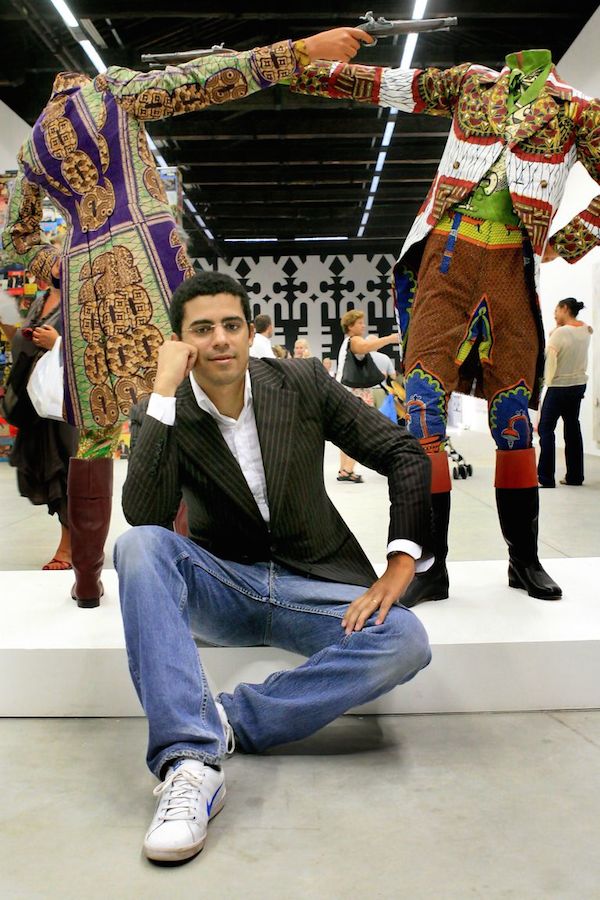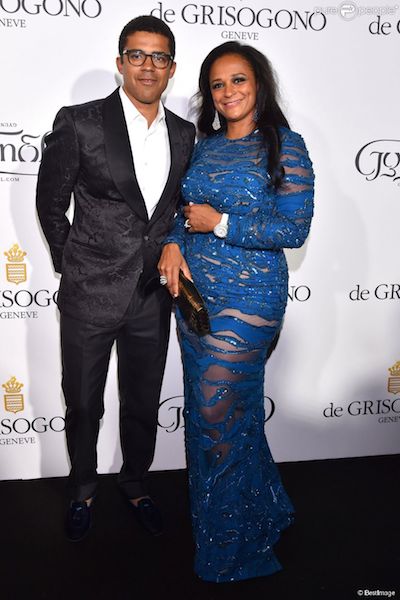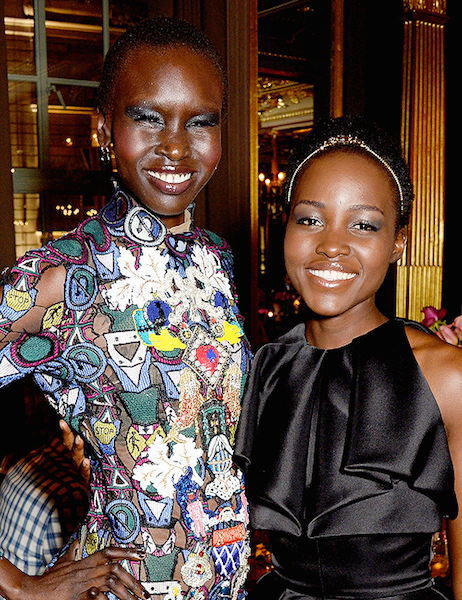People
Sindika Dokolo Wants to Repatriate All African Art Stolen During the Colonial Era
Dokolo and this team are monitoring art fairs, auctions, and archives.

Photo: via Lemonade
Dokolo and this team are monitoring art fairs, auctions, and archives.

Amah-Rose Abrams

Congolese art collector and businessman Sindika Dokolo has launched a worldwide campaign to return to the African continent African art that currently resides in Western Institution and auction houses.
Targeting art that was removed during the colonial era, Dokolo has set up a task force with the sole purpose of identifying such items in collections and on the market, offering the owners a choice: sell the item to him for the price they paid for it or face a legal suit for theft.
The group of both dealers and researchers will be scouring archives and records, and scrutinizing the art market in search of stolen works with the goal of eventually displaying the works in institutions throughout Africa.
“Works that used to be clearly in African museums must absolutely return to Africa,” Mr. Dokolo said in an interview with the New York Times while in town for an exhibition that included items from his collection. “There are works that disappeared from Africa and are now circulating on the world market based on obvious lies about how they got there.”
Dokolo has a collection containing over 5,000 works and has set up a subsidiary of his foundation based in the Angolan capital, Luanda, in Porto, Portugal. He hopes to open an institution in the city within two years where his collection will be on public display.
“Today there is not a single museum in the world which has managed to really value classical African art,” said Dokolo. “Sotheby’s and Christie’s mostly capitalize on how important African art has been in the modernization of European art, in terms of its influence on artists like Picasso or Braque.”
He can finance these projects because not only does he have his own wealth, but is also married to the richest woman on the African continent according to Forbes—Isabel dos Santos. Dos Santos is the daughter of Eduardo dos Santos, who has been president of Angola since 1979. Both husband and wife have strong business connections to Portugal.

Sindika Dokolo and Isabel dos Santos.
Photo: via Pure People.
Dokolo arrived in Angola—which, although prosperous, is considered very corrupt with poor distribution of wealth—after he was imprisoned without trial for “unpatriotic activities” in his home country.
Dokolo, whose mother is Danish and whose Congolese father founded the Bank of Kinshasa, believes the African art market should become more independent from the Western art market. His plans and attitude have caused rumbles from some quarters.
“[Dokolo] is now one of the very few Africans to collect African art, but that doesn’t give him the right to decide on his own what is good or not for African art,” said French curator and dealer of contemporary African art, André Magnin. “I don’t think you’ve got to be from Africa to appreciate African art, but I do think you’ve got to have traveled a lot across Africa to understand its different cultures, which is something that I really doubt Sindika Dokolo has even had the time to do.”

Alek Wek and Lupita Nyong’o at a Sindika Dokolo Art Foundation dinner in London.
Photo: via Don Bleek.
However, Dokolo also has some supporters.
“If an African collector can help educate young Africans about their culture,” said Pascale Obolo, the director of Afrikadaa, a publication in Paris about African art, “and can allow African artists to be valued by other Africans and not only by the European art market, that’s real progress, whatever the origins of his wealth or whether or not he is close to a dictatorial regime.”